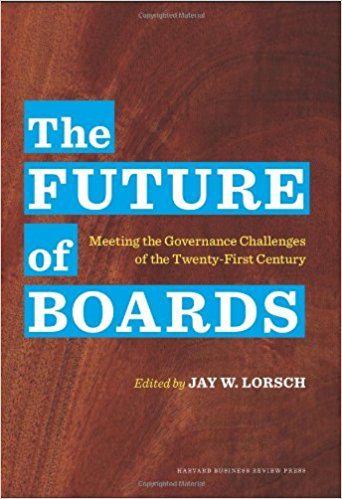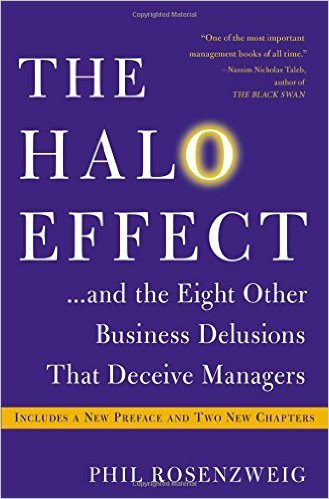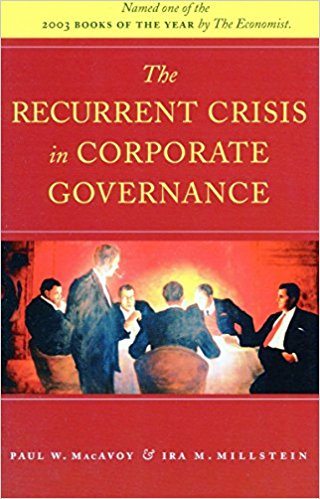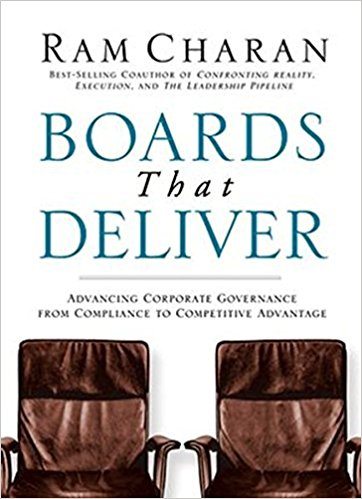Corporate Governance
-

Boards That Make a Difference: A New Design for Leadership in Nonprofit and Public Organizations (J-B Carver Board Governance Series) by John Carver
-

Building Better Boards: A Blueprint for Effective Governance (J-B US non-Franchise Leadership) by David A. Nadler, Beverly A. Behan and Mark B. Nadler
-

The Future of Boards: Meeting the Governance Challenges of the Twenty-First Century by Jay W. Lorsch
-

The Halo Effect…and the Eight Other Business Delusions That Deceive Managers by Phil Rosenzweig
-

The Recurrent Crisis in Corporate Governance by Paul Macavoy and Ira Millstein

